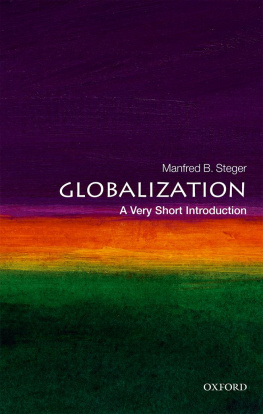William Roth - Globalization, Social Justice, and the Helping Professions
Here you can read online William Roth - Globalization, Social Justice, and the Helping Professions full text of the book (entire story) in english for free. Download pdf and epub, get meaning, cover and reviews about this ebook. year: 2011, publisher: State University of New York Press, genre: Politics. Description of the work, (preface) as well as reviews are available. Best literature library LitArk.com created for fans of good reading and offers a wide selection of genres:
Romance novel
Science fiction
Adventure
Detective
Science
History
Home and family
Prose
Art
Politics
Computer
Non-fiction
Religion
Business
Children
Humor
Choose a favorite category and find really read worthwhile books. Enjoy immersion in the world of imagination, feel the emotions of the characters or learn something new for yourself, make an fascinating discovery.

- Book:Globalization, Social Justice, and the Helping Professions
- Author:
- Publisher:State University of New York Press
- Genre:
- Year:2011
- Rating:3 / 5
- Favourites:Add to favourites
- Your mark:
- 60
- 1
- 2
- 3
- 4
- 5
Globalization, Social Justice, and the Helping Professions: summary, description and annotation
We offer to read an annotation, description, summary or preface (depends on what the author of the book "Globalization, Social Justice, and the Helping Professions" wrote himself). If you haven't found the necessary information about the book — write in the comments, we will try to find it.
William Roth: author's other books
Who wrote Globalization, Social Justice, and the Helping Professions? Find out the surname, the name of the author of the book and a list of all author's works by series.
Globalization, Social Justice, and the Helping Professions — read online for free the complete book (whole text) full work
Below is the text of the book, divided by pages. System saving the place of the last page read, allows you to conveniently read the book "Globalization, Social Justice, and the Helping Professions" online for free, without having to search again every time where you left off. Put a bookmark, and you can go to the page where you finished reading at any time.
Font size:
Interval:
Bookmark:

and the Helping Professions
and
Katharine Briar-Lawson

www.sunypress.edu
Marketing by Michael Campochiaro
Katharine.
- Nearly half the world's people, 2.7 billion, are living on less than $2 a day (The World Bank Group 2000).
- Two billion people will be added to the earth's human population over the next thirty years. Another one billion will be added over the following twenty years. All of this increase will occur in developing countries (The World Bank Group 2000).
- The average income in the richest twenty countries is now thirty-seven times that in the poorest twenty, a ratio that has doubled in the last forty years.
- While the numbers of the world's peoples living in extreme poverty are slowly decreasing, rising inequalities persist (UNDP 2002, 13).
- The United States has 5 percent of the world's people, yet consumes over 25 percent of the world's resources.
- Fifty-four countries are poorer than they were in 1990; thirty-four of those fifty-four countries have declining life expectancy rates; fourteen of those fifty-four countries have increasing mortality rates for children under the age of fourteen (UNDP 2003, 2).
- Inequities such as the following:
- A newborn in Afghanistan has a one in four chance of dying before the age of five, compared to a newborn in Japan who has a 50 percent chance of living to the age of a hundred years (UNDP 2002, 13).
- Worldwide, 171 million children are employed in hazardous work conditions (UNICEF 2006).
- As many as 8.4 million children are caught up in one or more of the following: slavery, trafficking, debt bondage, forced military recruitment, prostitution. and pornography (ILO 2004).
Font size:
Interval:
Bookmark:
Similar books «Globalization, Social Justice, and the Helping Professions»
Look at similar books to Globalization, Social Justice, and the Helping Professions. We have selected literature similar in name and meaning in the hope of providing readers with more options to find new, interesting, not yet read works.
Discussion, reviews of the book Globalization, Social Justice, and the Helping Professions and just readers' own opinions. Leave your comments, write what you think about the work, its meaning or the main characters. Specify what exactly you liked and what you didn't like, and why you think so.






